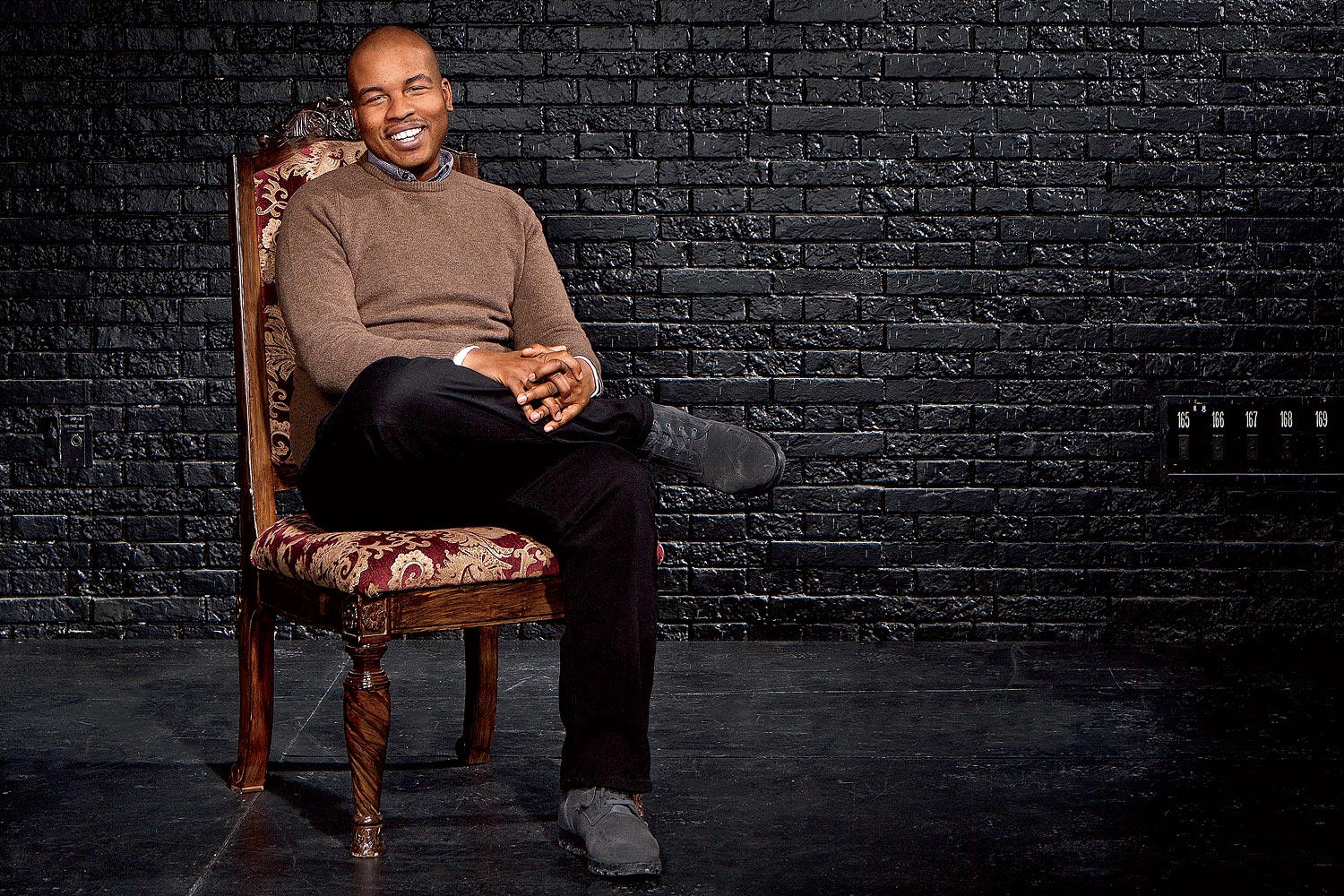When people ask Marcus Gardley about growing up in a gritty neighborhood of Oakland, California, he answers, “My parents said we could be anything that we wanted to be. They were adamant about it.” He cracks a smile and adds, “Kids don’t grow up with that. You have to instill it in them.”
The resident playwright at Victory Gardens Theater says that’s what he’s trying to convey with the title of his new play, The Gospel of Lovingkindness, opening February 28. The Bronzeville-set rumination on mothers and sons affected by gun violence took him two years (and 13 drafts) to write.
During that time, Gardley visited dozens of Chicagoans affected by violence, and asked them to describe day-to-day life in their troubled neighborhoods. The common story: “Usually a mother has lost a child, and the child is usually a son,” says Gardley. “I’ve been to a lot of young persons’ funerals. It’s always unnatural. When my cousin was murdered, his friends stood outside the parlor home pouring 40s [40-ounce beers] and smoking weed [while] the family grieved in the funeral home with the dead body there.”
At 36, Gardley is impressively degreed (he graduated from the Yale School of Drama and teaches at Brown University) and has won considerable attention for a playwright his age. Many of his works, such as Every Tongue Confess and On the Levee, epic tales with the sort of lofty language and magical realism that invite comparisons to Toni Morrison and August Wilson. In a 2010 review of Every Tongue Confess, Hilton Als of The New Yorker declared Gardley’s talent “immense.”
It was Gardley’s use of poetry that first attracted Chay Yew, Victory Gardens’ artistic director. “When Marcus came along, I told him it’s time for us to figure out what the narratives are for the African American community,” says Yew, who invited Gardley to join the theatre’s playwriting ensemble in 2011. “One that I felt very passionate about was gun violence.”
It’s a passion shared by Gardley, who still carries the weight of his cousin’s death with him. “That story is in me now,” he reflects. “It’s in my art.”



